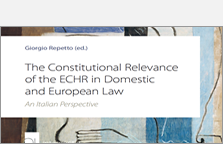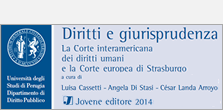SARTARELLI S. – La Corte EDU “bacchetta” (forse troppo severamente) l’Italia per l’omessa tutela rilevata in un caso di violenza domestica
Autore dell’articolo/Author
Stefania Sartarelli
Abstract
Sommario: 1. La necessaria ricostruzione storica.- 2. Le ragioni della Corte.- 3. Alcune perplessità
1.La necessaria ricostruzione storica.
Con la sentenza in commento, l’Italia viene condannata per non aver adempiuto agli obblighi positivi derivanti dagli artt. 2 e 3 della Convenzione ed anche per aver, così facendo, determinato una discriminazione di genere in violazione dell’art. 14; più nello specifico, le autorità italiane avrebbero omesso di intervenire tempestivamente (sia sul piano sostanziale che processuale) a tutela della vita e dell’integrità fisica della ricorrente e dei suoi figli, vittime di violenza domestica da parte del marito, il quale, nel reiterare le condotte aggressive del proprio nucleo familiare, finiva per uccidere il figlio della ricorrente. […]
In this judgment Italy was condemned for failing to comply the positive obligations under Articles 2 and 3 of the Convention and also for having, in so doing, determined a gender discrimination in breach of Article 14. More specifically, the Italian authorities failed to intervene in a timely manner (both processually and substantially) in order to protect the life and physical integrity of the applicant and her children, victims of domestic violence by her husband. The man, during an aggression against the applicant, killed her son who had intervened in the desperate attempt to defend the mother.
The Italian State, as censored by the Court, did not consider the applicant’s risk of life and therefore did not take the necessary precautionary measures to protect the victims of domestic violence. Although fairly shared, the judgment raises doubts about the concrete possibility for the Italian authorities to recognize the existence of the indicated risk.
.













